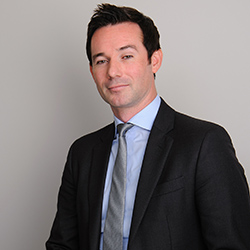 Amid the many negatives of the pandemic, a positive spotlight has been cast on ESG investing, says David Storm, Head of Multi-Asset Portfolio Strategy, RBC Wealth Management International
Amid the many negatives of the pandemic, a positive spotlight has been cast on ESG investing, says David Storm, Head of Multi-Asset Portfolio Strategy, RBC Wealth Management International
While most asset prices took a beating during the initial phase of Covid-19, environmental, social and governance (ESG) investments did better than most.
The pandemic has not only caused a global health crisis, but also sent financial markets into a maelstrom in early 2020.
While the outbreak is undoubtedly a tragedy of epic proportions, it has also highlighted the importance of maintaining investment exposure to companies that pursue sustainable goals for ESG factors.
The ESG investment theme isn’t new. Even before the virus crisis hit, sustainable investing was becoming a hot topic with investors across the board.
It has been in the RBC ethos for a long time and our central mantra has always been to help our clients thrive and communities prosper. A focus on sustainability is central to this.
Recent experience also shows that stocks with stronger ESG characteristics are more resilient during bear markets.
While almost all asset prices experienced sharp downfalls during the initial phase of the coronavirus pandemic, ESG investments in February and March did better than most, according to recent analysis by Morningstar.
Furthermore, between mid-February and mid-March, 66% of ESG funds ranked in the top half of their categories.
Influential younger generation
Even during the crisis, clients wanted to talk about ESG investing. One client was interested in ensuring their entire portfolio had an ESG stance. They were doing this at the insistence of their young daughter, who had asked them what they were doing to save the planet.
The focus of the younger generation on sustainability is a common topic in client conversations. According to research from The Economist Intelligence Unit (EIU), 76% of younger* generations in the UK say it’s increasingly important to consider ESG factors when investing, compared with 37% of older* generations.
In addition to discussing portfolio management, these discussions also allow wealthy individuals and their families to talk about how they can address their non-financial goals, such as fighting climate change or supporting social agendas.
ESG investing tends to outperform
While investing in companies with sustainable business practices is worthy on its own, there’s a long-held misconception that doing so comes at a price of lower investment returns.
That would seem to have put the daughter’s goal at odds with the parents’ in the example cited earlier. The client had previously put off making ESG investments because they believed the performance of their portfolio would suffer.
But in truth, the opposite is the case. Portfolio managers that embrace sustainable investment factors have significantly outperformed their peers.
Companies that strive to adhere to ESG principles tend to score highly on other metrics as well. Lots of portfolios that have high ESG scores perform strongly financially. Invariably, the companies that do well on ESG measures are of a better quality.
Sustainability cheaper for long-term investing goals
Until the pandemic hit, the superior financial results from companies with good ESG ratings attracted huge investor interest, pushing up stock prices and making the shares expensive.
However, the recent market pull-back in most asset prices has made ESG stocks better value for long-term investors such as those around health, clean energy, water, waste and food.
Indeed, across the 10-year investment horizon, they’re relatively cheap now, so this could be a perfect moment to add some quality ESG companies to a portfolio.
While some investment fads come and go, the trends driving the need for sustainable business practices are here for the long term.
Embracing investments in these forthcoming trends is a way of readying a portfolio for the coming changes in the global economy.
Obvious long-term themes include the move away from fossil fuels to renewable energy, but there is also the increased use of artificial intelligence and new technology to help care for both an ageing population and the environment.
Investors can benefit from these trends and use them to future-proof a portfolio.
* ‘Younger’ is defined as Generation X or the Millennial generation, born between 1965 and 2000. ‘Older’ is defined as Baby Boomers or those in the Silent Generation, born in 1964 or earlier.
• This advertising feature was first published in the August/September 2020 edition of Businesslife magazine